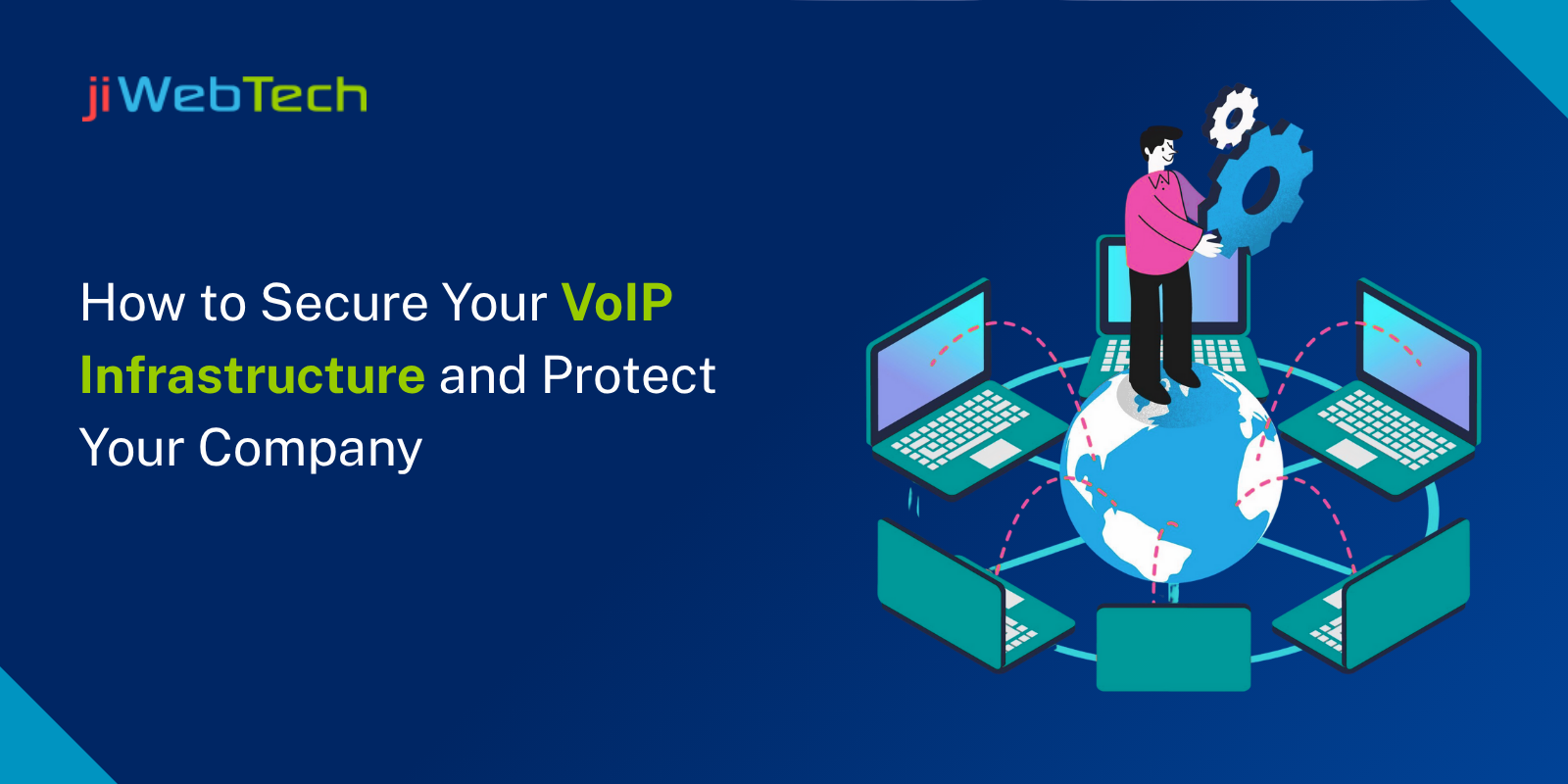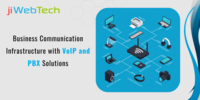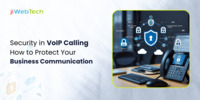- Jul 31, 2025
- Communication
- 2457
Share this post on:

In today’s digital world, communication is the backbone of every business. Whether you’re talking to customers, suppliers, or team members, VoIP (Voice over Internet Protocol) technology has revolutionized the way we communicate. VoIP allows you to make phone calls over the internet, offering a more cost-effective solution than traditional phone systems. However, like all internet-based technologies, VoIP systems are vulnerable to security threats. If not properly secured, your VoIP infrastructure can be an easy target for hackers and cybercriminals. In this blog, we will discuss the importance of securing your VoIP infrastructure and provide some practical tips to safeguard your company’s communication.
Why Is Securing VoIP Important?
VoIP systems are extremely popular because of their affordability and flexibility. However, this popularity also makes them an attractive target for cyberattacks. If attackers gain access to your VoIP network, they can intercept your calls, listen in on conversations, and even impersonate your employees or customers. In the worst-case scenario, they can hijack your VoIP system to make fraudulent calls, leading to significant financial losses.
Some of the most common VoIP security threats include:
- Eavesdropping: Hackers can listen to confidential conversations.
- Call Interception: Fraudsters can reroute calls and make unauthorized ones.
- DoS (Denial of Service) Attacks: These attacks can overload your VoIP system, making it unavailable to users.
- VoIP Phishing (Vishing): Cybercriminals can trick users into giving up sensitive information using phone calls.
1. Use Strong Authentication Methods
One of the first and most important steps in securing your VoIP system is setting up strong authentication protocols. This ensures that only authorized users can access your system. Some effective authentication methods include:
- Two-Factor Authentication (2FA): Add an extra layer of security by requiring a second form of identification (e.g., a one-time password sent via text or email) in addition to your regular password.
- Strong Passwords: Use complex and unique passwords for all devices, systems, and accounts related to your VoIP setup. A combination of upper and lower-case letters, numbers, and symbols makes passwords harder to crack.
2. Implement Firewalls and Encryption
Using firewalls and encryption methods can help protect your VoIP network from external threats.
- Firewalls: A VoIP firewall filters traffic and blocks unwanted or malicious access to your network. It’s essential to use a firewall that specifically supports VoIP traffic. This will help to protect your system from various cyberattacks like DoS or DDoS (Distributed Denial of Service).
- Encryption: Encrypting your voice data ensures that even if hackers intercept your calls, they won’t be able to understand the content. End-to-end encryption for VoIP calls is one of the most effective ways to protect sensitive information.
3. Regular Software Updates
VoIP software and hardware systems should always be up to date. Software vendors regularly release updates to patch known vulnerabilities and fix bugs. These updates often contain important security fixes that can protect your system from cyberattacks. Ignoring updates or using outdated software can leave your VoIP system exposed to known vulnerabilities. Set up automatic updates wherever possible to ensure your system stays secure.
4. Monitor and Analyze Your Network
Continuous monitoring of your VoIP infrastructure is key to spotting and responding to security threats quickly. Set up network monitoring tools that can track all incoming and outgoing traffic, detect unusual behavior, and alert you about potential threats. These tools can help you:
- Detect unauthorized access or unusual usage patterns.
- Identify DoS or DDoS attacks that could bring your VoIP system down.
- Monitor call quality to identify possible tampering or interference.
5. Train Employees on VoIP Security Best Practices
While your IT team plays a critical role in securing your VoIP infrastructure, employees should also be aware of the risks and best practices. Conduct regular training sessions to educate staff on:
- Identifying phishing emails or vishing attacks.
- Using strong passwords and two-factor authentication.
- Reporting suspicious activity immediately.
By ensuring that your employees follow VoIP security guidelines, you can reduce the risk of human error, which is often the weakest link in security.
6. Use Secure VoIP Providers
Choosing a reliable VoIP provider is essential for securing your communications. Make sure the provider offers a high level of security, including features like:
- End-to-end encryption.
- Secure voice traffic management.
- Regular audits to ensure compliance with security standards.
- Support for 2FA and other authentication methods.
If your provider doesn’t meet security best practices, your system could be at risk, even if you’ve implemented strong security on your end.
7. Limit Access to VoIP System
Not all employees need access to every part of your VoIP infrastructure. Limiting access based on roles and responsibilities is a good practice for minimizing the chances of unauthorized access. Consider implementing:
- Role-based access control: This ensures that users only have access to the resources they need.
- Least Privilege Principle: Give employees the minimum level of access necessary to perform their job duties.
8. Secure Endpoints
VoIP systems are often accessed via various endpoints, such as desktop phones, mobile devices, and softphones. Securing these endpoints is just as important as securing your VoIP server.
- Use VPNs (Virtual Private Networks) for remote employees to ensure secure connections.
- Ensure that devices are password protected and regularly updated.
- Use anti-virus and anti-malware software on all devices that access your VoIP system.
Conclusion
Securing your VoIP infrastructure is not just about protecting your network; it’s also about safeguarding your business reputation, data, and finances. By following the tips outlined above, you can significantly reduce the risk of security breaches and ensure that your VoIP system remains a secure and reliable communication tool for your company. Remember, securing your VoIP system is an ongoing process. Stay informed about the latest threats and always be proactive in implementing the latest security measures.
FAQs
Q1. What is VoIP security?
VoIP security involves protecting VoIP networks and communication systems from cyberattacks, fraud, and unauthorized access.
Q2. How can I prevent VoIP hacking?
To prevent VoIP hacking, use strong passwords, enable two-factor authentication, use encryption, and regularly update your software.
Q3. What are common VoIP security threats?
Common VoIP threats include eavesdropping, call interception, DoS attacks, vishing, and toll fraud.
Q4. Do I need a firewall for my VoIP system?
Yes, a firewall specifically designed for VoIP traffic helps protect your system from malicious attacks and unauthorized access.
Q5. Is it safe to use VoIP for business calls?
Yes, VoIP is safe for business calls if proper security measures, such as encryption, firewalls, and regular monitoring, are in place.
Q6. Can VoIP security affect call quality?
While security measures like encryption may slightly impact call quality, the trade-off is worth it to ensure the safety of your communications.









